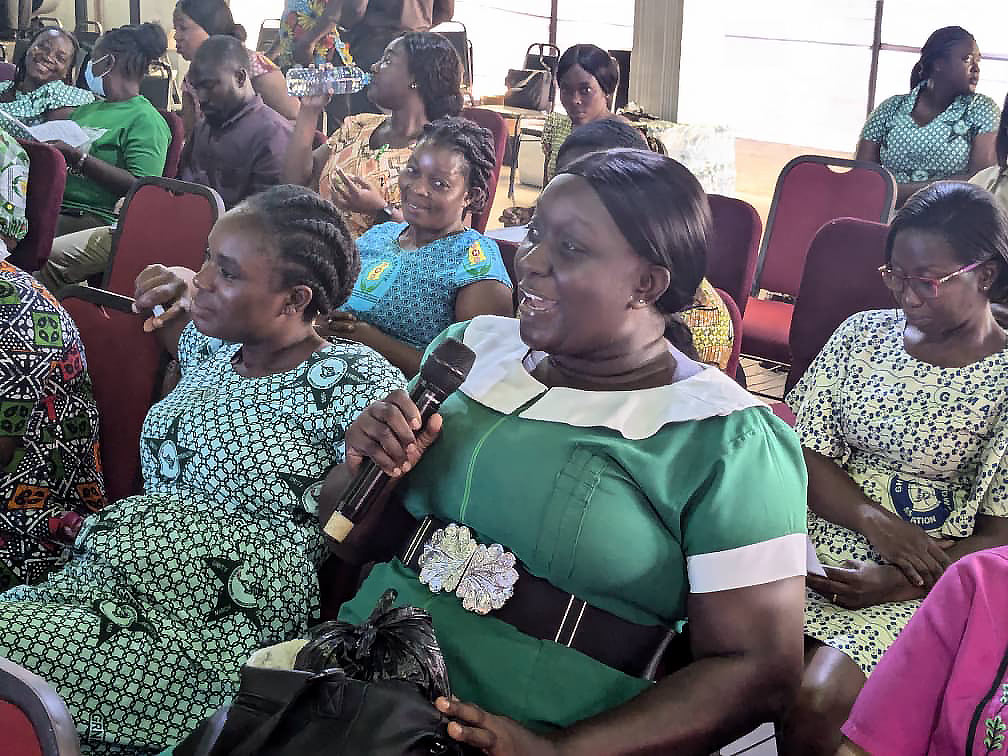Driving Primary Health Care Improvements through Local Leadership in Ghana
Driving Primary Health Care Improvements through Local Leadership in Ghana

The Primary Health Care Performance Management (PHC-PM) activity is making strides in Ghana and Rwanda, working directly with local leaders to strengthen primary health care (PHC) management practices. At the heart of this effort is the District PHC Leadership Development Program (PHC-LDP), which equips District Health Management Teams (DHMTs) with the skills and tools needed to make data-driven decisions that directly impact their communities.

In Ghana, the districts of North Tongu and Akuapim South recently completed the second of four performance improvement cycles under the PHC-LDP, marking an important milestone in their journey toward more resilient, people-centered PHC systems. Each cycle, the DHMTs apply proven leadership, management, and collaborative problem-solving approaches to identify and achieve priority PHC results, using data to guide decision-making, and implementing targeted action plans to strengthen services. Learning by doing, the DHMTs gain a better understanding from cycle to cycle about how to effect change in their district health systems and how to target limited resources for greater returns.
In January 2025, leaders from both districts gathered for reflection meetings to assess their progress, share experiences, and analyze data to refine their strategies. These meetings provided a critical opportunity to evaluate successes and challenges from the second cycle while planning the next steps to ensure continued improvement. Many health workers found the PHC-LDP transformative. One community health nurse from North Tongu shared: “I’ve never participated in a training session of this standard since I started working. This approach truly equips us to make a difference.”

In Akuapim South, the DHMT prioritized increasing skilled delivery rates, reducing stockouts, and minimizing insurance claim rejections. Through efforts including routine data validation, field support visits, and regular performance bulletins, they achieved measurable improvement in these areas. A shared vision, focused improvement targets, access to reliable data, and rigorous root cause analyses empowered the team to implement solutions that directly addressed community needs. Similarly, in North Tongu, the DHMT focused on expanding family planning and vaccine coverage. By analyzing family planning data, the DHMT identified obstacles leading to gaps in services and developed interventions to increase access to information and methods, particularly for underserved populations. One community member highlighted the impact: “Because of the family planning outreach, my service provider now brings services directly to my community. This has been a great help to me and many others.”
Across both districts, locally driven solutions are taking root – not as top-down directives, but as context-specific responses shaped by local leadership and community input. This focus on district-level decision autonomy fosters a sense of ownership essential for sustaining long-term improvements. Looking ahead to Cycle 3, the teams are already applying lessons learned. With strengthened leadership and governance skills, district leaders feel more equipped to analyze data, identify challenges, and set realistic goals. As North Tongu’s District Health Director, Michael Zigah, put it: “This intervention has prepared us to prioritize effectively. We now have the tools to make informed decisions and set achievable goals.”
“This intervention has prepared us to prioritize effectively. We now have the tools to make informed decisions and set achievable goals.”
Michael Zigah, North Tongu’s District Health Director

The progress in North Tongu and Akuapim South demonstrates the power of local leadership and strategic data use in transforming PHC systems. By elevating the voices of local health workers and implementing practical solutions, the activity is not only strengthening stronger health systems but also showcasing how district-driven change leads to meaningful, lasting improvements. Increased outreach services, higher-quality skilled delivery care, and more efficient insurance claims processing are just some of the tangible benefits already making a difference in these communities. As Ghana continues on this journey, the lessons learned from these early successes will guide efforts to replicate and scale the PHC-LDP approach—both within the country and beyond- ensuring that more communities benefit from stronger, more responsive PHC systems.